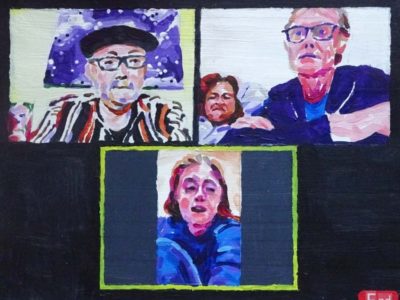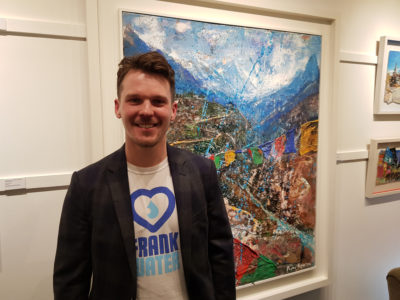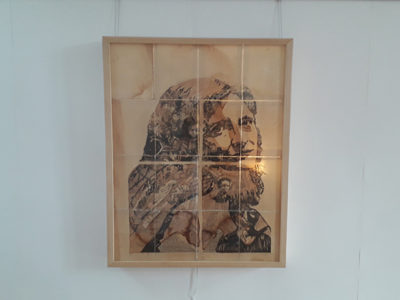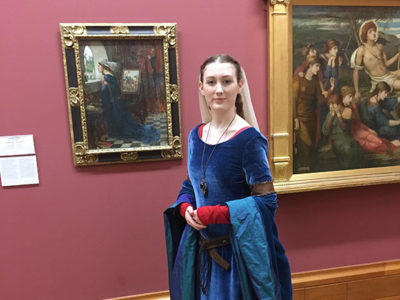“In the end, people are the most important thing. And the way they behave and how they look and how they behave in relation to one another is, in the end, the most complex area. So that’s what I ended up doing.”
Harry Holland is widely recognised as one of Britain’s most accomplished artists.
His work, noted for its technical and figurative attributes, has been exhibited in the Tate Gallery, British Museum, Metropolitan Museum of Art New York, National Museum of Wales, National Portrait Gallery Canada, Belgian National Collection and the Fitzwilliam Museum Cambridge.
He was born in Glasgow in 1941 and trained at St. Martin’s School of Art between 1965 and 1969. He now lives on a quiet street in Canton, Cardiff.
“I identify myself as a European,” he said. “More – a European and Cardiffian, more than Welsh or English or Scottish. Identity – painter, traditional painter, Cardiffian, European.”
Walking to his studio, you can see some of the drama on the streets that have inspired him throughout his career. A man walked past me with a trumpet tucked under his arm. A group of funeral goers stood solemnly in a shadow at the curb and a woman, straight out of a Harry Holland painting herself, cleaned a window in the cold sunshine, a defensive expression on her face.
“I have to say that we came from London and we lived in the midlands for a while and Cardiff is a very good city to be an artist in,” Mr Holland said. “There’s a lot of support. I’m talking about psychological support, and there’s a lot of generosity in the city.
“We came in 1973,” he continued. “I came to teach in the art college and I taught there for about five years until 1978 and then I gave up teaching and I’ve been working as a professional artist since then.
“I’m very fond of Cardiff – it’s one of the few places that I know of where, if you have a gripe about anything that’s going on, you can actually go and talk to the person who’s responsible – physically. It’s small enough for you to be able do that, and it’s got all the things that make a place interesting and worth being in.
“One of Wales’ big needs is that there is no platform for political debate outside the Assembly. In other words, there’s no platform for debate of the assembly, because the newspapers just won’t do it.
“You’re speaking here to someone who thinks the Arts Council should be shut down,” he continued. “It is doing far more damage than it is good – largely because it won’t make judgements based on quality of art.
“They support purely on a political basis to do with supporting the community, what they call relevance, what they call challenging. These are things that I don’t know what they really mean. I know what artistic quality means and I know how very difficult it is to make judgements about that but, nevertheless, that is what they should be doing.”
Harry Holland trained in the 1960s, when abstraction and expressionism were de rigueur.
“The idea that you can actually construct an art entirely of abstract qualities, abstract verities if you like, abstract universals, was extremely attractive,” he said. “Removing narrative from that meant that you were removing locality. You were taking away yet another thing that stopped making something universal.”
So, was he never tempted down that road himself?
“In the end, people are the most important thing,” He said. “And the way they behave and how they look and how they behave in relation to one another is, in the end, the most complex area. So that’s what I ended up doing.”





